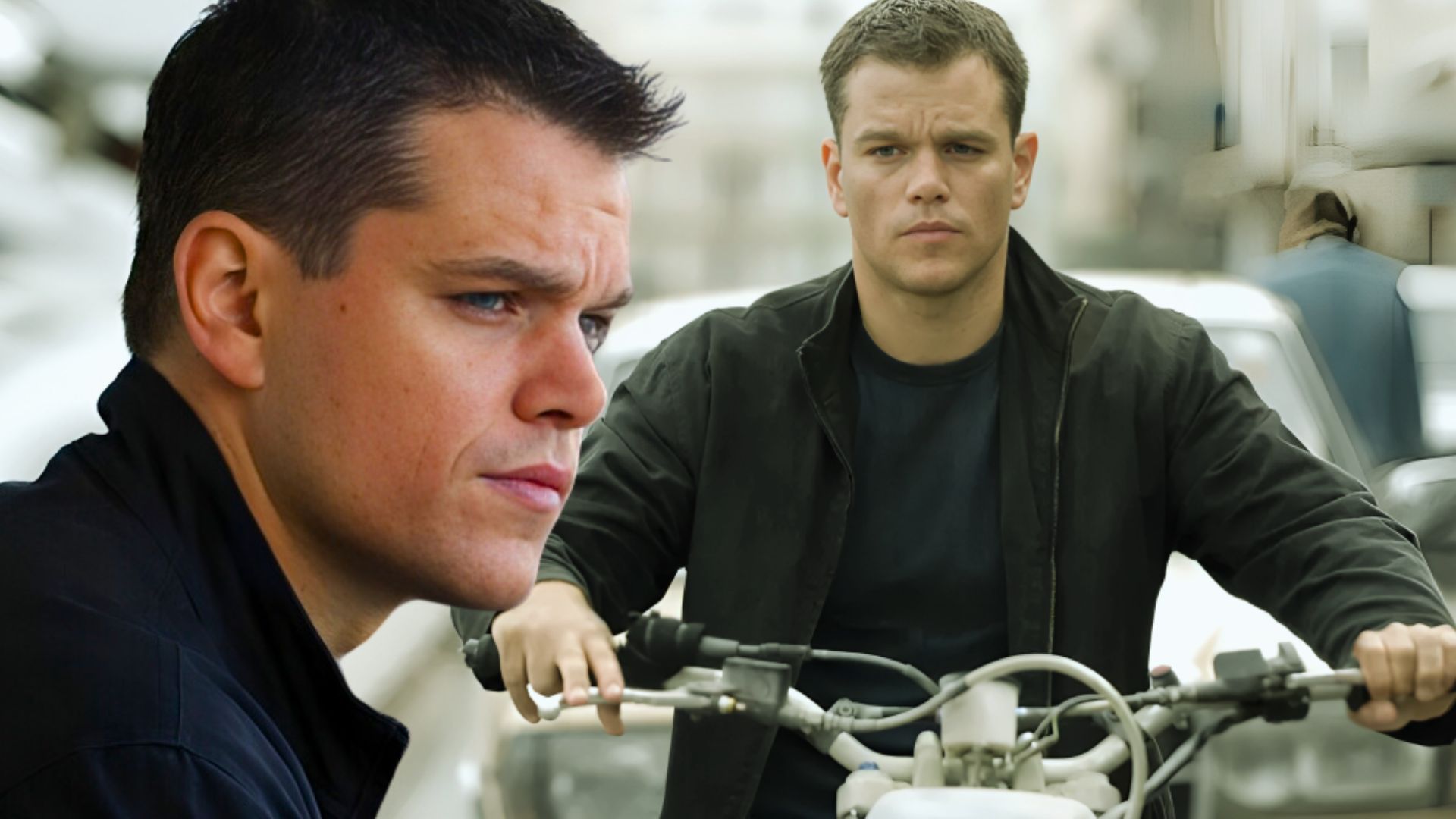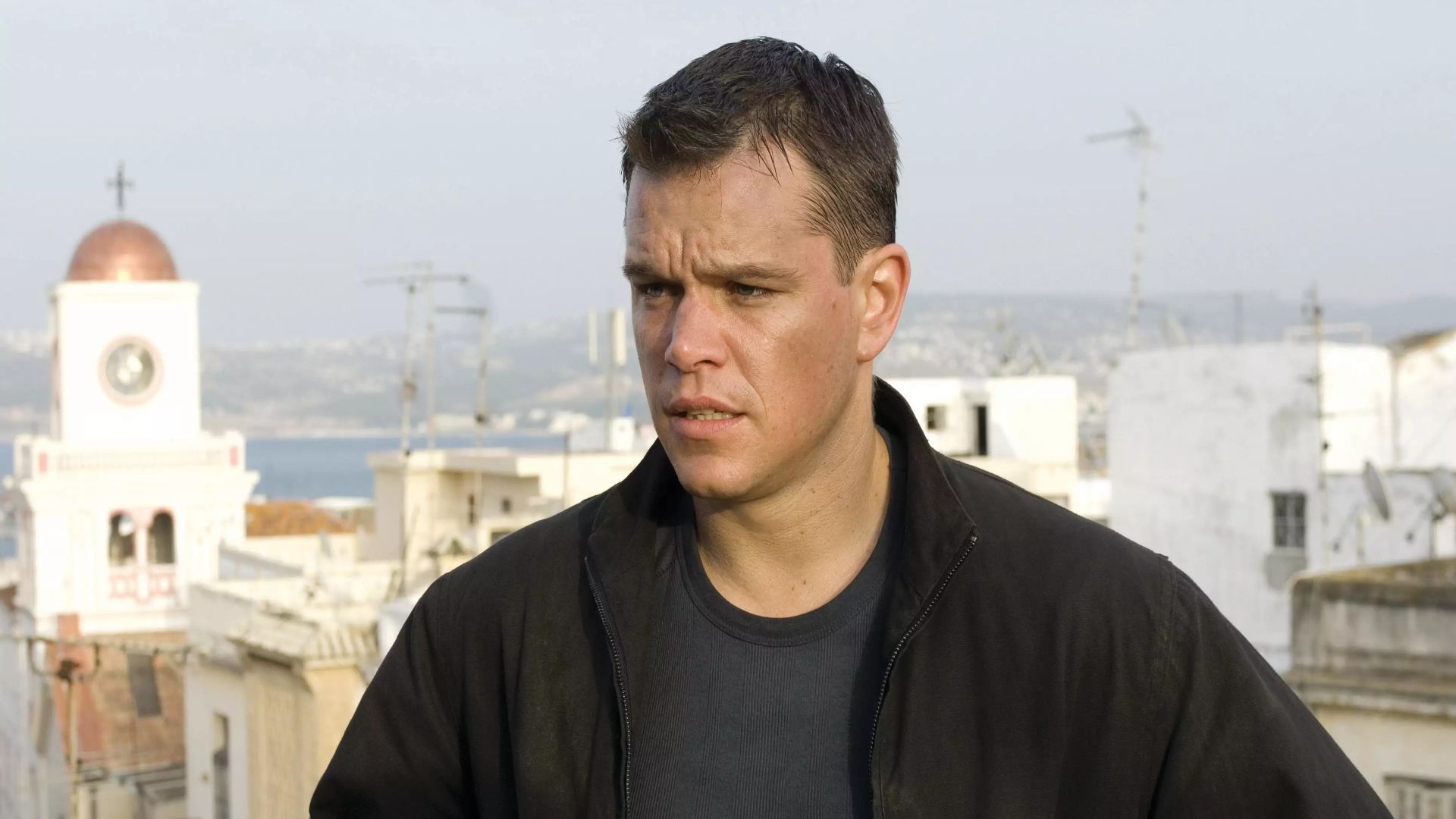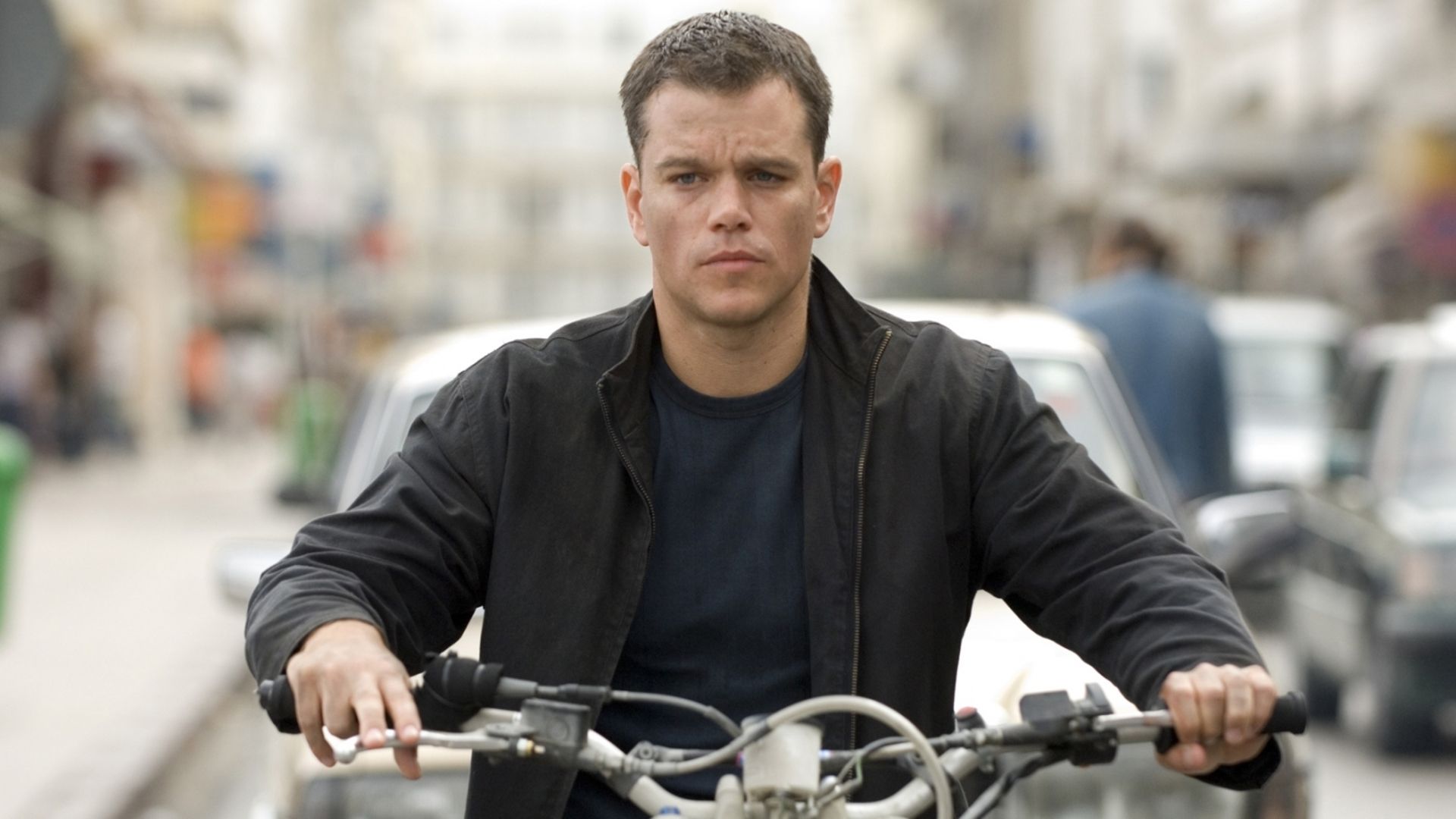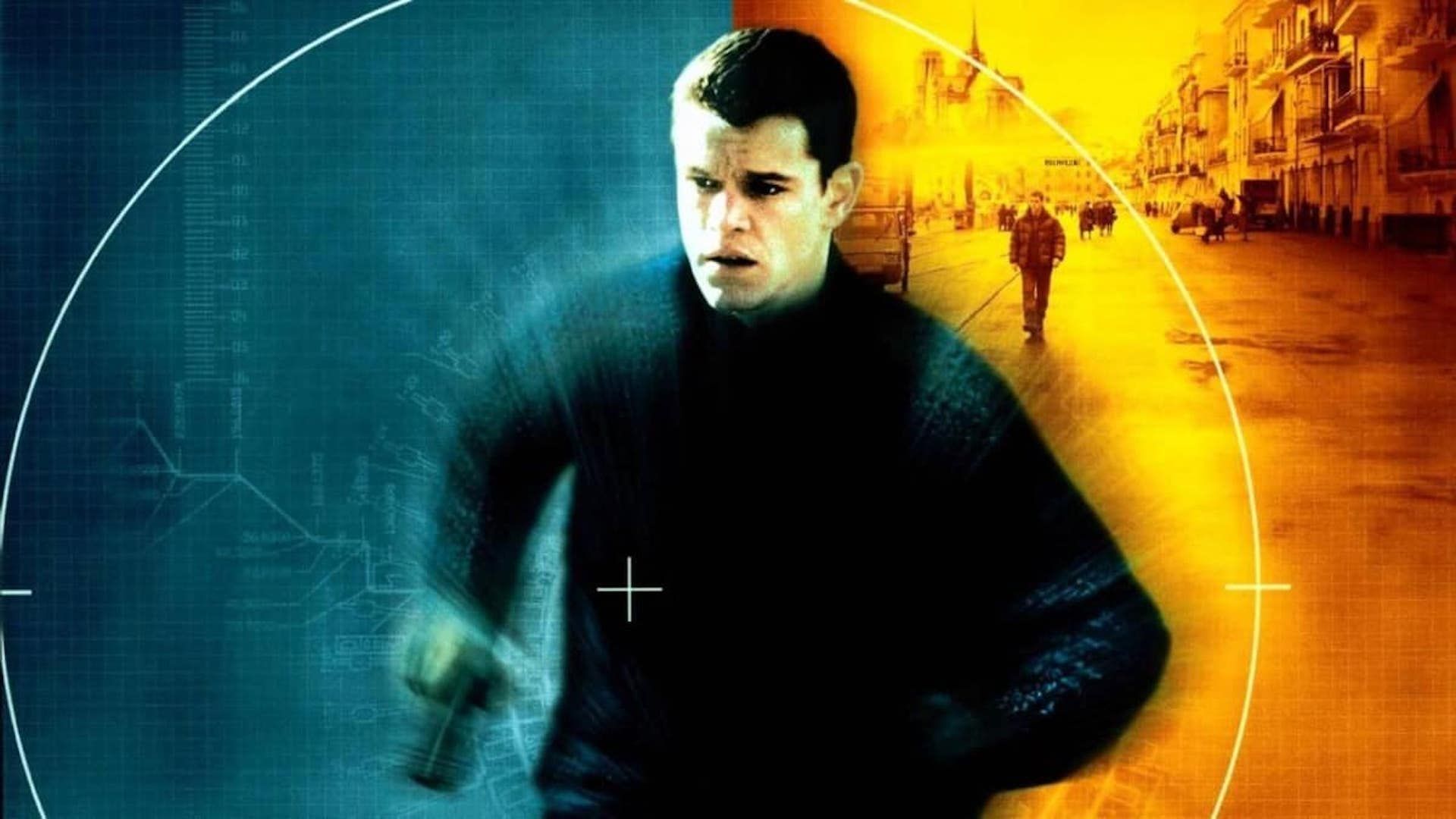
As a seasoned reader of thrilling novels and a connoisseur of cinematic masterpieces, I find myself captivated by the enigmatic figure of Carlos the Jackal – a man whose infamy once echoed through the annals of history like a ghostly whisper. Yet, it is with a sense of missed opportunity that I ponder the absence of this legendary assassin in the film adaptations of Robert Ludlum’s Bourne series.
In the early 2000s, only a handful of franchises have significantly shaped the action genre as much as the original Bourne trilogy did. Inspired by Robert Ludlum’s acclaimed novels, these films revolutionized the spy thriller genre, breaking away from the more campy style that was commonly associated with James Bond at the time. Doug Liman’s direction in The Bourne Identity and especially Paul Greengrass’s work on the second and third installments brought a darker, grittier feel to the series, which stood out notably before the release of Batman Begins. Within just over ten years, action films began adopting fast editing, shaky camera work, and hand-to-hand combat – a trend that has had both positive and negative impacts on the genre.
It might come as a shock to realize how distinct the books are compared to the popularity of the films based on Robert Ludlum’s novels. The movie “The Bourne Identity” makes some adjustments to the characters but essentially maintains the book’s essence. On the other hand, “Supremacy” and “Ultimatum” could be considered adaptations in name alone. However, the most striking alterations revolve around Ludlum’s main villain who was completely omitted from the films. What makes this even more intriguing is that this character was based on a real-life assassin and terrorist.
Who Was Carlos the Jackal in the Books?



In the book adaptation of “The Bourne Identity,” the narrative commences much like the movies, but as Jason Bourne’s past unfolds, it deviates. It is eventually disclosed that his true identity is David Webb. This revelation occurs after it is discovered that he joined a CIA Special Forces team following the death of his family in a Vietnam bombing. Later on, he was part of a joint military-CIA program called Treadstone 71.
The purpose behind the program was to make Jason Bourne appear as a notorious assassin, going by the alias “Cain,” in order to establish a myth about his abilities. This was done with the hope that other assassins, like Carlos the Jackal (Ilich Ramirez Sanchez), would be provoked into revealing themselves, allowing Bourne to locate and eliminate them.
In the gripping narrative of the novel, I found myself engrossed as the amnesiac protagonist, Jason Bourne, embarked on a quest to rediscover his past. As he delved deeper, it became evident that someone was pursuing him relentlessly – none other than the cunning assassin, Carlos. The story then unfolded into a thrilling game of hide-and-seek, with both of us trying to outsmart each other and draw the other out from the shadows. In the heart-stopping climax of the book, it was Carlos who almost claimed victory over Bourne, but fate intervened, forcing him to retreat.
In Robert Ludlum’s portrayal of “The Bourne Ultimatum”, an older Carlos, who was absent from “The Bourne Supremacy”, reappears with a vengeance. He has two objectives before his demise: eliminating Jason Bourne and dismantling the KGB training facility that once molded him. Towards the end of the novel, Bourne orchestrates a ruse to make Carlos believe he’s dead, provoking him to pursue his mission against the KGB facility. As Bourne eventually locates Carlos, he launches a sudden ambush, leading to their final confrontation which culminates in Carlos meeting his end by drowning in a river.
Who Was the Real Life Carlos the Jackal?



It’s quite fascinating to ponder why Carlos the Jackal, such a significant character in Robert Ludlum’s books, never made it to the movies. The explanation is straightforward: by the time film adaptations were being made, the real-life individual had been apprehended and imprisoned by the French government in 1994. This notoriety he held during the 70s and 80s would have been unfamiliar to modern viewers. For Ludlum, incorporating a real-life assassin into his novels was a means of enhancing the authenticity of his story’s world, while captivating readers with a contemporary figure whose infamy was so prominent at the time.
It’s no exaggeration to say that Carlos the Jackal was a well-known figure, often referred to as one of the world’s most sought-after assassins and political terrorists during his time. He was an open supporter of Marxist-Leninist ideologies, affiliated with the Popular Front for the Liberation of Palestine, and had backing from both the KGB and the Stasi. One of his most notorious actions occurred in 1975 when he orchestrated a raid on the Organization of the Petroleum Exporting Countries (OPEC), hoping to capitalize on the chaos for the Palestinian cause. Regrettably, three lives were lost, and eleven oil ministers were taken hostage. Despite this, Carlos was expelled from the PFLP due to his failure to carry out the execution of the hostages when their demands weren’t fulfilled.
In the early 1980s, he gained additional infamy when his wife Magdalena Kopp, another revolutionary, was apprehended in France. Failing to persuade the French administration to free her, he initiated a series of bombings across the nation during the spring and summer of 1982. The actions of Western governments resulted in some of his Soviet allies withdrawing their support, causing him to flee as an international outlaw. He spent the remainder of the decade concealed in Syria until whispers emerged that Saddam Hussein was attempting to enlist him for a terrorism campaign against the United States.
In essence, Carlos was apprehended in Sudan in 1994 using methods outside the judicial system, subsequently taken to Paris to answer for his wrongdoings. From 1997 until 2014, he encountered at least three murder charges and was convicted on each count, earning three life imprisonment terms. Interestingly, there’s a touch of poetic irony in this situation: the lengthy period during which he lacked his former notoriety has diminished his status as a legendary criminal mastermind. On reflection, it appears that he made numerous operational blunders, a fact now evident to observers.
The Bourne Films Didn’t Need Carlos the Jackal


Robert Ludlum’s Bourne novels are all fantastic, and their inclusion of a real-life figure as notorious as Carlos the Jackal added a great deal of grounding to a story that could’ve seemed far-fetched, and he proved a fantastic antagonist to boot. But since Carlos’s notoriety had long faded by the time the film adaptations came around, it would’ve been a fool’s errand to include him. Besides, the original Bourne cinematic trilogy was fantastic on its own terms, different from the novels but an engaging variation on a similar theme, and including Carlos would’ve arguably distracted from that. The Bourne Identity and The Bourne Supremacy are streaming on MGM+, while The Bourne Ultimatum is streaming on Fubo.
Read More
- Grimguard Tactics tier list – Ranking the main classes
- 10 Most Anticipated Anime of 2025
- Gold Rate Forecast
- USD CNY PREDICTION
- Box Office: ‘Jurassic World Rebirth’ Stomping to $127M U.S. Bow, North of $250M Million Globally
- Silver Rate Forecast
- Mech Vs Aliens codes – Currently active promos (June 2025)
- Castle Duels tier list – Best Legendary and Epic cards
- Black Myth: Wukong minimum & recommended system requirements for PC
- “Golden” Moment: How ‘KPop Demon Hunters’ Created the Year’s Catchiest Soundtrack
2024-10-28 02:04